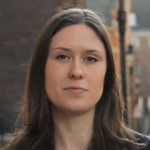 Amy Sippitt is Full Fact‘s research and impact manager. She runs a team of fact-checkers, and promotes high-quality research into the impact of fact-checking and the misinformation ecosystem.
Amy Sippitt is Full Fact‘s research and impact manager. She runs a team of fact-checkers, and promotes high-quality research into the impact of fact-checking and the misinformation ecosystem.
The Need to Know project was launched in February to anticipate and plan for what information is needed for upcoming public decisions. Here Amy — who co-ordinates the project — explains more about what the project hopes to achieve.
Experts can and do work together to call out spurious factual claims and argument. But they also play a big role in laying the groundwork for debate. This starts with attempting to predict the big debates that will be happening in five years’ time, and producing information to inform these debates before things get too heated for the information to be heard.
This is exactly what the Need to Know project is about — a joint project between Full Fact, the Economic and Social Research Council, the UK Statistics Authority, and the House of Commons Library. Continue reading →
 Alex Hulkes is Strategic Lead for Insights at the ESRC, and is responsible for developing our ability to evaluate and carry out data-informed analysis of ESRC investments, policy and operation.
Alex Hulkes is Strategic Lead for Insights at the ESRC, and is responsible for developing our ability to evaluate and carry out data-informed analysis of ESRC investments, policy and operation. Dr Aude Bicquelet is a Research Director in the Health team at NatCen – the National Centre for Social Research. Aude specialises in the analysis of ‘Big Qualitative Data’ on health-related issues and has worked with professional and regulatory health bodies such as the National Institute for Health and Care Excellence (NICE) and the Royal College of Physicians.
Dr Aude Bicquelet is a Research Director in the Health team at NatCen – the National Centre for Social Research. Aude specialises in the analysis of ‘Big Qualitative Data’ on health-related issues and has worked with professional and regulatory health bodies such as the National Institute for Health and Care Excellence (NICE) and the Royal College of Physicians.  Amy Sippitt is
Amy Sippitt is